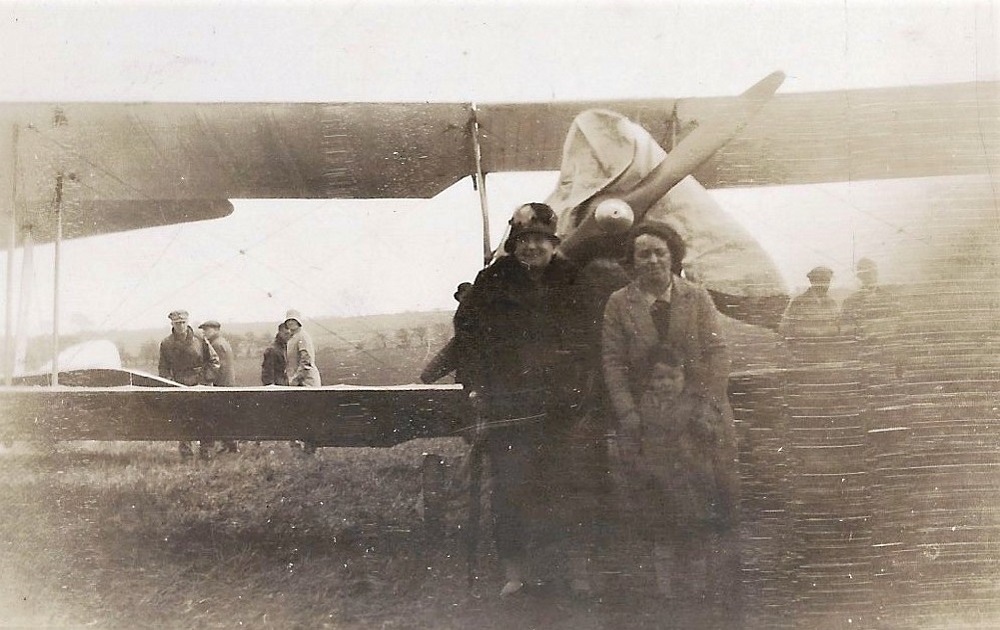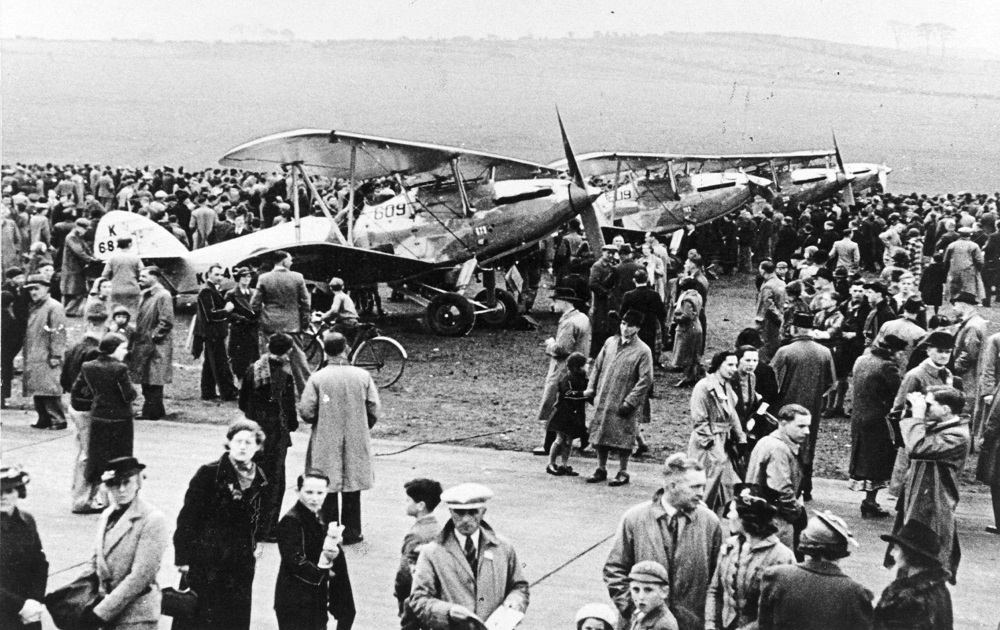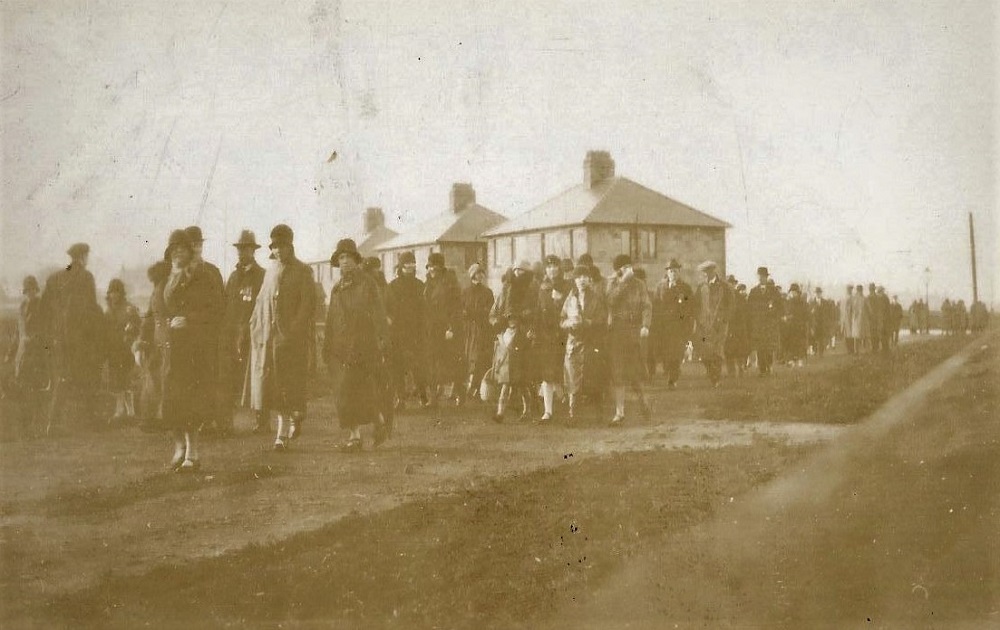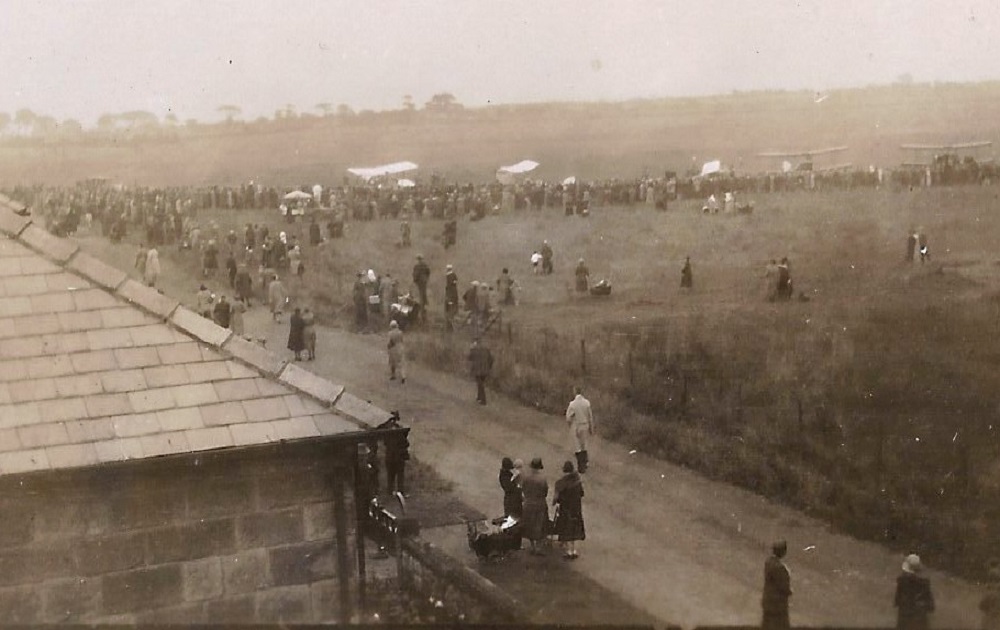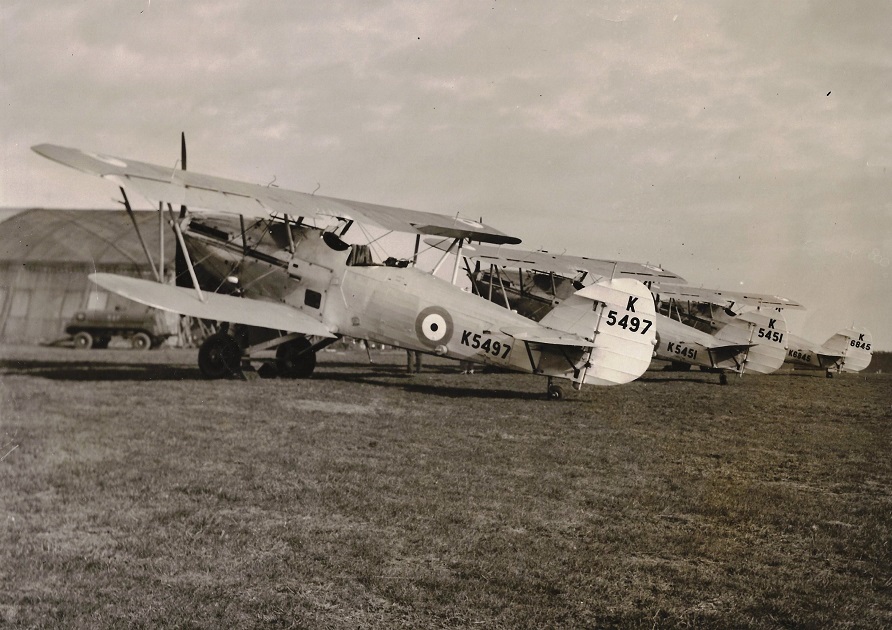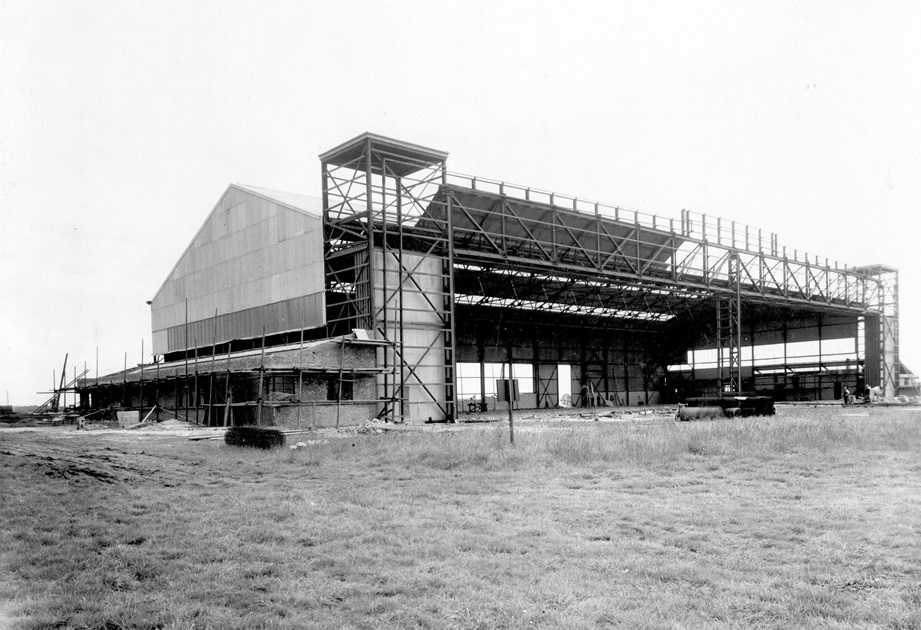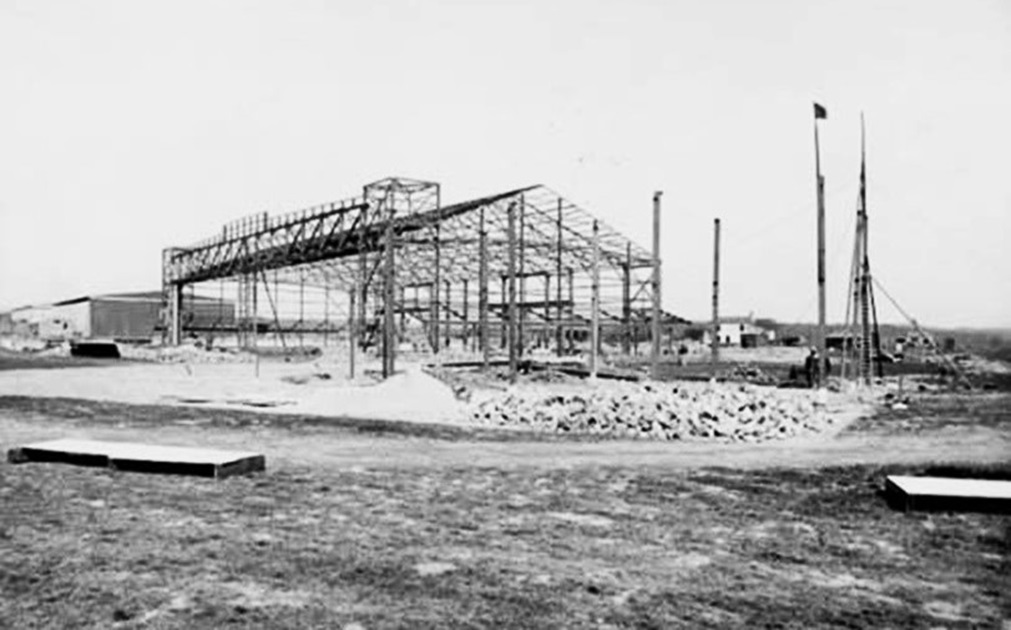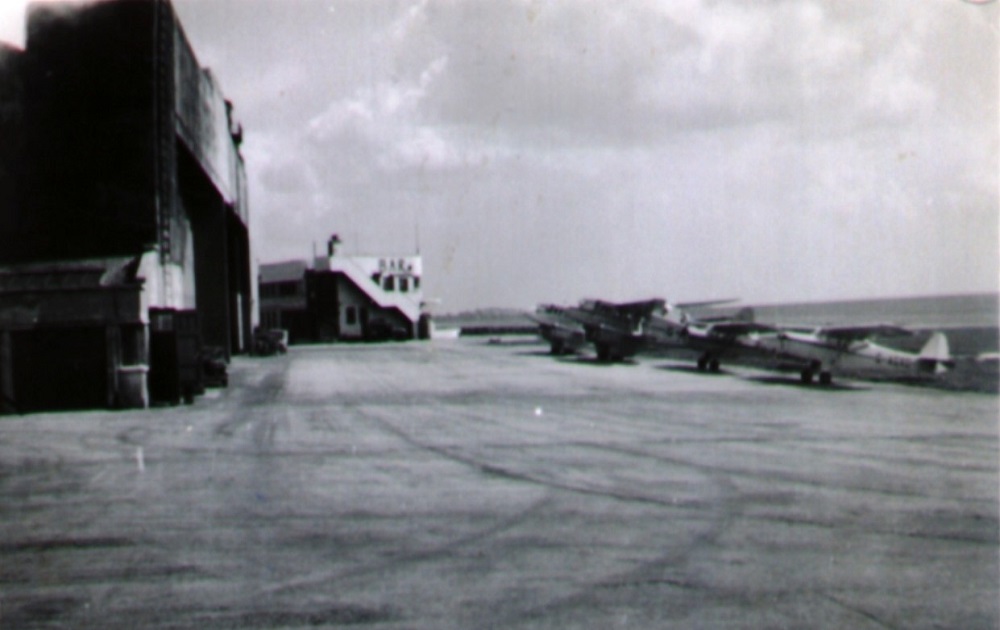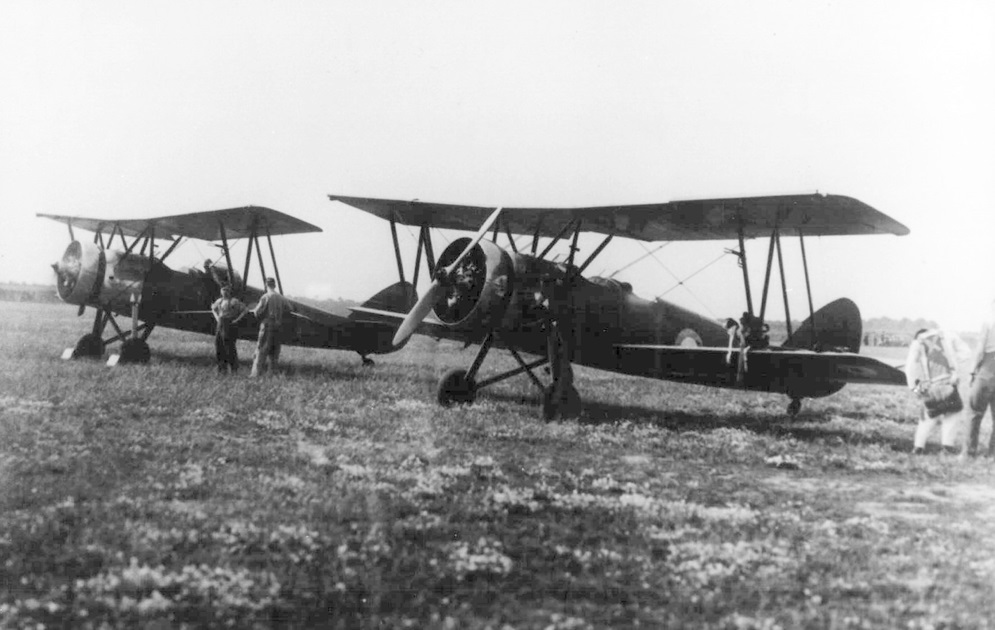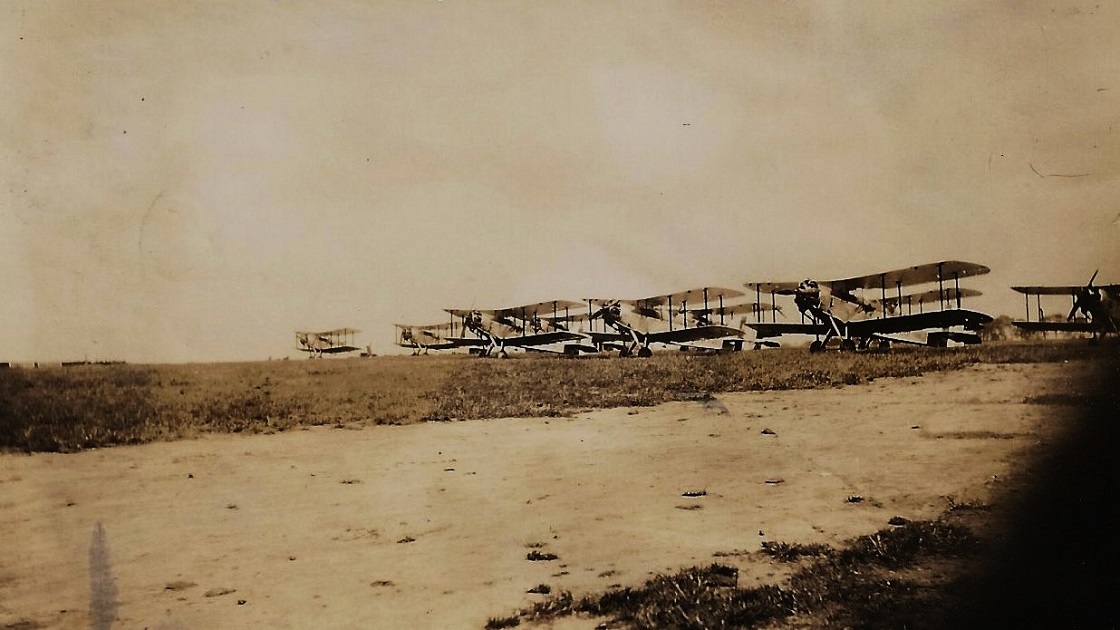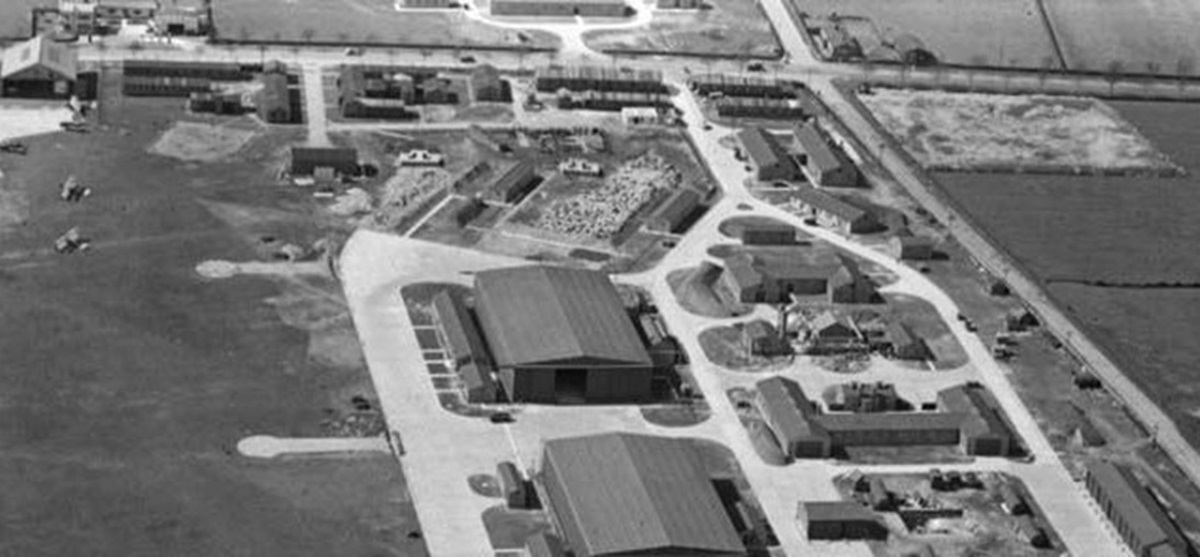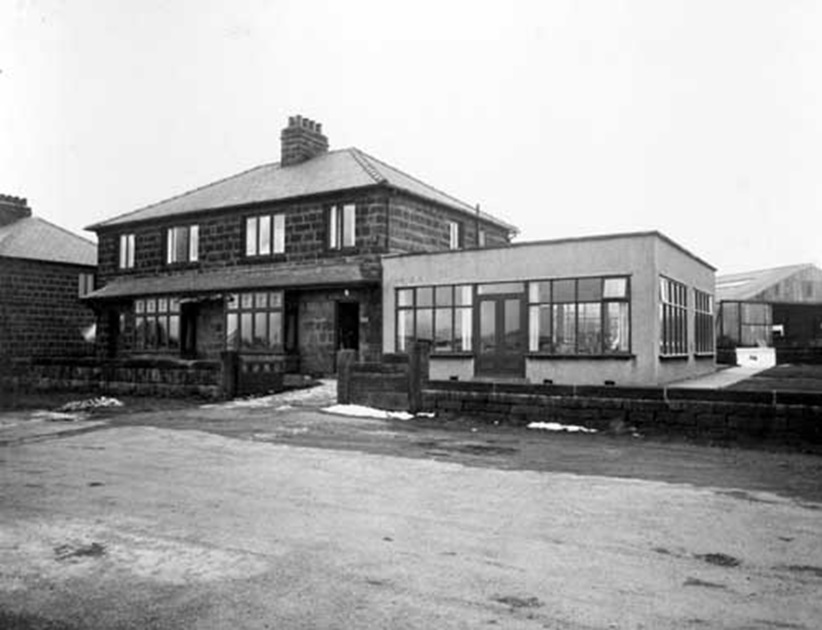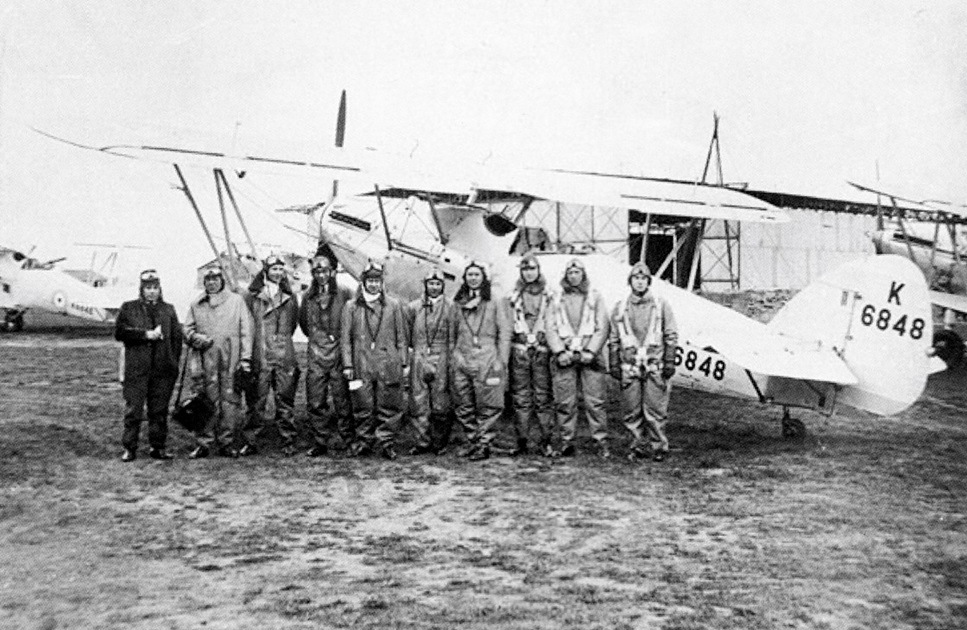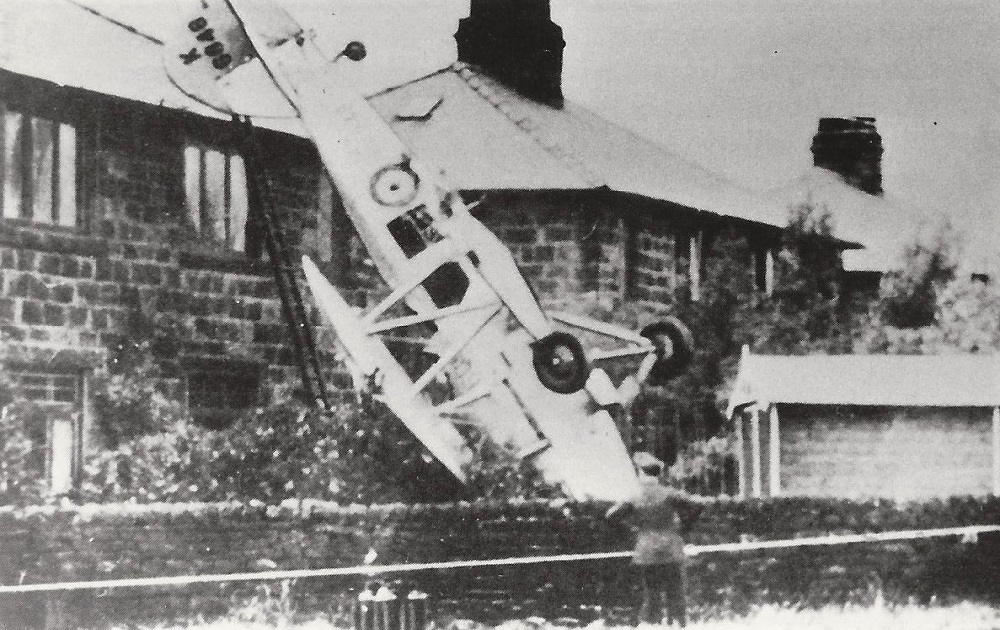| Title | Aerodrome. |
| Date | 1930 – 1939 |
| Location | Yeadon |
| Photo ID | E039 |
| Comment | See below … |
Empire Day
Leeds and Bradford Councils Jointly purchased 60 acres of land on Yeadon Moor for use as an airport.
It was formally opened on 17th October 1931 by Mr H Jenning of Yeadon UDC, initially it was used for training and flying lessons given by the Yorkshire Aeroplane Club who had moved to Yeadon from their base at Sherburn-In-Elmet, the Club’s chief instructor was Captain Henry Vernon Worrall.
In May 1938 the first RAF sponsored show was held, the aircraft on display were Hawker Hinds of No. 609 (West Riding) Squadron.
A Fairey Battle K7629 also took part.
Seen here in front of an aircraft is, on the left, Mrs Croft with Mrs Emsley and Michael Emsley on the right.
Aerodrome & 609 (West Riding) Squadron RAF Yeadon – 1938
Empire Day
Crowds enjoy Empire Day at Yeadon Aerodrome which later became Leeds and Bradford Airport.
On display are Hawker Hinds of 609 (West Riding) Squadron.
Courtesy of Ken Cothliff from his book, Yeadon Above and Beyond.
Aerodrome & 609 (West Riding) Squadron RAF Yeadon – 1938
Empire Day
Possibly taken at the Empire Air Day, there are many spectators watching an aircraft.
There were Empire Air Days in May 1938 and May 1939 before the airport became a military installation at the outbreak of war on 1st September 1939.
Aerodrome & 609 (West Riding) Squadron RAF Yeadon – 1938
Empire Day
Crowds of people are admiring the aircraft.
The roof on the left was one of 3 pairs of semi-detached houses in a cul-de-sac off Victoria Avenue (Harrogate Road), this was the entrance to the airfield and the Yorkshire Aeroplane Club (now the entrance to Multi-flight flight training and aircraft charter September 2012).
The pair of semis nearest to the airfield was used as a club house by the Aeroplane Club, the upper storey being the home of the Club’s chief instructor Captain H V Worrall and his family.
Aerodrome & 609 (West Riding) Squadron RAF Yeadon – 1938
The airplanes were Hawker Hinds, designed by Sir Sydney Camm they were a standard light bomber.
They were in use in Britain between 1935-1939.
In this view the the Auxiliary Air Force 609 West Riding Squadron were preparing to fly the planes to Kent and back.
The 609 Squadron was formed in Yeadon in 1936 to fly bombers then converted to fly fighter planes in 1938.
In 1939 they were mobilized with 2 Spitfires and a Fairy Battle due to aircraft shortages.
They were the first Spitfire Squadron to achieve 100 air-to-air “kills” and pioneered use of the Hawker Typhoon until 1945. Now stationed at and known as 609 West Riding Squadron Royal Auxiliary Air Force.
Aerodrome & 609 (West Riding) Squadron RAF Yeadon – 1930/39
Editor’s Note: Though not taken at Yeadon Aerodrome and the aircraft are of 608 (North Riding) Squadron RAF, it is thought prudent to include this image on our pages in respect of the fact that 609 (West Riding) Squadron RAF, were originally a bomber squadron and probably flew similar aircraft. Ed. JB. 17 February 2024.
Thornaby-On-Tees is the home of 608 (North Riding) Squadron formed in 1930 as a day bomber squadron within the Auxillary Air Force. They initially flew Avro 504N or Westland Wapiti aircraft until these were replaced by Hawker Demons in 1937.
In March 1939 the Squadron’s role was changed to general reconnaissance under RAF Coastal Command flying Avro Ansons, which aircraft are seen here?
Aerodrome & 609 (West Riding) Squadron RAF Yeadon – 1939
A Hawker Hind K8648, piloted by Flight Lieutenant John Dundas with Leading Aircraftman Hunter in the rear cockpit (RAF 609 Squadron), had engine failure on takeoff.
Flt. Lt. Dundas was unable to brake and crashed into the garden of a nearby house, the aircraft ended up nose down and tail up against the wall of the house.
This property was one of 3 pairs of semi-detached houses close to the airfield, following this incident they were compulsorily purchased and demolished.
In this view an official is surveying the wrecked aircraft.
John Dundas and his brother Hugh became fighter pilots during the Battle of Britain, John died after being shot down over the English Channel on August 22nd 1940.
To view a history of Flt Lt John Dundas and to read more on this accident, please – Click Here.
